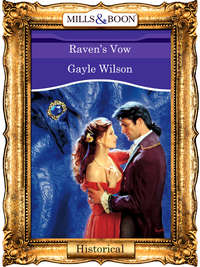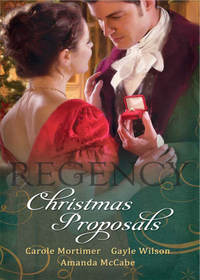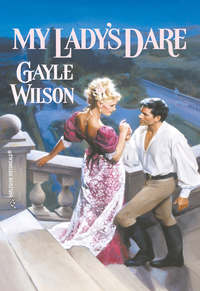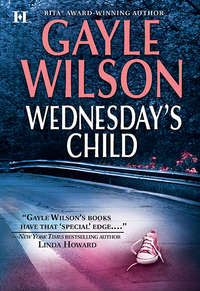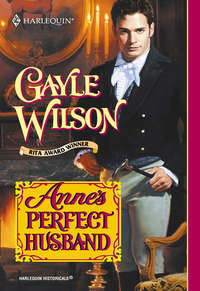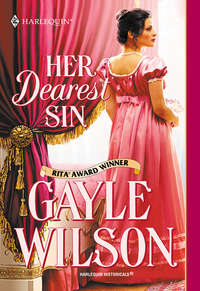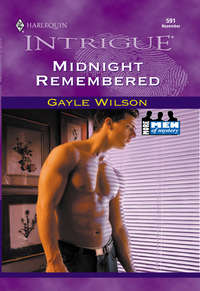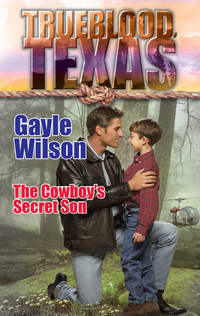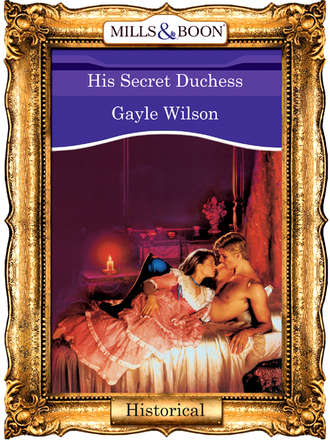
Полная версия
His Secret Duchess
“Gentlemen, I thank you for the game,” the duke said, instead of making the offer he had briefly considered. Vail began gathering up the wagers, stacking the notes into an untidy pile. Forty years ago a man such as the Duke of Vail might have been accompanied by a dwarf or even a small Indian boy appropriately attired in rich Eastern garb, whose job it would have been to perform such a task for him. Times had changed, and title or no, a gentleman collected his own winnings. One might, however, as Vail certainly was, do so with an air that proclaimed the task to be hardly worth the effort.
“I was told that without your efforts in the House today, Wellington’s bill might have failed,” one of the players commented as they watched the unhurried movement of those elegant fingers. It was difficult for these young aristocrats to believe that this man could truly be interested in the dull Tory agenda.
“Although we don’t always see eye-to-eye on political matters, I agreed to speak in support. In return for a favor of long standing, if you will.” His Grace acknowledged the correctness of that information without glancing up.
“A very great favor, I should think,” Essex ventured. “I understand you returned from France to take part in the debate.”
“Family business had occupied me there for the last few months. That was finally completed, however, and I was very glad to be able to return in time to put myself at Wellington’s disposal.”
“But you’ve missed most of the Season,” someone said sympathetically.
The duke’s eyes lifted, gleaming suddenly with an unexpected amusement, to the speaker’s face. “Indeed,” he said, a trace of humor also clear in that single word. It was somehow made obvious by his tone that the charms of the famous London Season were certainly lost on him. “I am so sorry,” he said, although it was also obvious to them all that he was not.
No one knew whether or not to laugh. That was the trouble with Vail. One was never certain whether his quietly sardonic comments were intended to evoke amusement. The silence stretched uncomfortably, until the duke, as if suddenly becoming aware of their discomfort, raised his storm-gray eyes and allowed his gaze to skim the circle of faces surrounding him.
“Was there something particularly entertaining about this Season?” he asked, allowing one brow to arch slightly in question. His brows and lashes were several shades darker than the gold of his hair, which shone now almost silver-gilt in the soft glow of the chandeliers. The fine lines imprinted on his handsome features were not those of dissipation, of course. Given his family’s tragedies, it was not surprising that the face of this man bore the marks of suffering.
The slightly patronizing question reduced the social highlight of the London year to the most inane of activities—at least as far as His Grace the Duke of Vail was concerned. They were well aware that the duke seldom left his vast country estate, disdaining the society they adored. So they racked their brains for some town event that might prove he had, by his voluntary seclusion, missed a great deal that was entertaining.
“Lucy Sanderson produced a new brat to add to her brood.” someone ventured. “And, of course, no one may be sure of his patrimony—other than that it is certain not to be Sanderson’s.”
A poor choice of topic, since there was nowhere to go with the story. Although there had been heavy wagering posted in the betting books on the outcome of that pregnancy, the child had proved remarkably ordinary, and no one had been certain enough of the father to claim to have won.
The polite boredom in His Grace’s eyes did not change.
“Cheatingham’s youngest eloped with a fortune hunter. The earl chased them halfway to the Border, but a broken axle delayed him long enough that the wicked deed was done by the time he arrived,” Lord Alton added.
“More than one wicked deed had been accomplished by the time of Cheatingham’s arrival,” another corrected archly, and appreciative laughter greeted the sally.
“Since the girl has spots and a squint, besides her ten thousand, she’s lucky someone was willing to suggest the anvil,” Alton said.
The story was greeted with silence by the man they were attempting to entertain. Vail apparently found the petty scandal exactly that.
“And then there is the ongoing rustic sensation,” someone suggested. “That entertaining morality tale of Mary Winters and the merchant.”
It was a story with which they were all familiar. The interest with which the ton had followed the unfolding events, was rather amazing considering that the scandal involved no one who had the remotest connection with the beau monde. Their fascination, however, was characteristic, bred from the same ennui that caused them to worship the latest opera dancer or prizefighter, or to choose the worst of the numerous highwaymen who plagued the countryside to lionize and applaud, even as the man dangled on the gallows, as inevitably he did.
The story of Mary Winters contained the sordid elements that titillated the jaded imaginations of London’s elite: sexuality and violence. The tale had circulated for weeks, and as her trial approached, one still might find animated arguments in the clubs on aspects of the case that had not been brought to any suitable resolution and might never be.
“Mary Winters?” Vail repeated the name softly, his tone subtly different from the gentle cynicism of a moment ago. The deep voice had expressed the merest hint of interest in what the speakers had said, but since it was the first he had shown in any of the gossip they had offered, they hurried to enlighten him.
“A serving girl who tried to murder her master,” Alton began to explain, only to be silenced by several protesting voices.
“Governess,” someone corrected. “She was the child’s governess.”
“There’s no proof she was attempting to kill him.” Another voice came clearly through the hubbub. “She claims she struck in self-defense.”
‘Of course,” someone else said derisively. “What else could she say, given what she had done?”
“Apparently the merchant discovered the woman had been stealing the household moneys, as good as taking food out of the mouths of his dying wife and his son while he’d been away on business,” Alton continued, over several protesting voices. “Naturally, Tray wick was horrified, angry enough to upbraid her, even to threaten legal action. The thought of prison must have frightened her to death. Later that night, she attacked him with the poker and knocked him unconscious into the fire. He suffered the most abominable burns to his face. It’s said his visage is permanently marred.”
“That’s the merchant’s version,” the viscount said dismissively. “The few villagers who had contact with the woman, however, are openly doubtful of that sequence of events. For one thing, it doesn’t explain the blow to her face.”
“And what do they believe?” Vail asked. His eyes were not on the speaker, but rather on his fingers, which, despite the sudden pounding of his heart, still appeared relaxed, idly playing with one of the cards from the now forgotten game. Ironically, he noted, the card was the queen of hearts.
“That Mary Winters was defending herself from Traywick’s unwanted sexual advances,” Salisbury said succinctly. “His wife had recently died, and the merchant is deemed to be a man of strong and…somewhat strange sexual appetite. He has an unsavory reputation for cruelty among the local prostitutes. Despite the death of the wife, the governess was still living in his home. She has no family, no one to offer her protection. Maybe he thought he could get away with assaulting her, or that a spinster in her situation would welcome his advances in the hope that eventually, if she pleased him, they would lead to an offer of marriage.”
“But she was dressed,” someone reminded him. “Remember that. She was fully dressed when she came into the village to get help.”
“With a torn nightgown left behind as proof of his attack.”
“Which she could have torn herself to back up her version of events.”
The excited babble of argument grew and expanded, each speaker repeating assertions that had already been made innumerable times since news of the country scandal reached the capital. No one could have explained why, but the circumstances surrounding the case had fired enough interest that the trial of Mary Winters had become something of a cause célèbre.
“Consider that the child cannot speak,” Alton said. “Sure evidence that something untoward occurred.”
“Perhaps evidence that he had watched his beloved governess being attacked by his drunken father.”
“Traywick had been drinking. There’s no doubt of that. The constable found the empty decanter of port overturned in his room.”
“The woman poured it out to give weight to her version.”
“Why was she fully dressed?”
“Would you have her run into the village naked? Use your head, man.”
“And no one knows whether or not the child is capable of verifying either story. Traywick won’t allow anyone to question him.”
“And the outcome?” Vail asked. The quiet authority in the duke’s voice broke through the confusion. There was silence for a moment as they considered the surprising question, but after all, they gradually realized, Vail had been out of the country. He could not be expected to know the details they were so familiar with.
“Well,” Alton admitted, “there has been no outcome. Not yet, at any rate. The charge of attempted murder was too serious for the local magistrate to hear, so it’s been put over until the assizes. The trial is to convene…” He paused, uncertain.
“This week,” someone supplied.
“The location?” Vail asked. The gray eyes lifted to the speaker who seemed to have more factual knowledge than the rest. Somehow the duke’s face had changed, its planes reset into granite, as cold and as hard as the gaze he was wont to direct at those who had dared through the years to encroach upon his fiercely protected privacy.
“Penhurst,” Harry Caldwell supplied. He was better versed in the controversy than anyone, since his father’s manor house was the largest in the district where the assizes would be held.
The duke’s mouth moved slightly. It was a location less than forty miles from his own estate. Despite the failure of the searches he had launched, Mary Winters had not traveled far in the intervening years.
“Then, gentlemen, if you will forgive me, it seems I have a journey to undertake.”
The duke rose. Despite the hours he had sat at this table, the black coat and trousers, the silk waistcoat and the snowwhite stock were perfect, just as they had been when he left his valet’s hands. He adjusted his sleeves, and then glanced up to find shocked curiosity manifested on the faces of the gentlemen who had sought to entertain him.
“Journey?” Harry Caldwell repeated carefully.
“Penhurst, I believe you said,” Vail affirmed.
“To the trial? You plan to attend Mary Winters’s trial?” The question was one they all had, but only Alton had the presence of mind to give voice to it.
“It seems, gentlemen, rumor has erred in asserting that Mary Winters is without protection,” Vail said simply.
He inclined his head politely, at the same time fighting the urge to smile that their slack-jawed shock had evoked. He could imagine, given the ardor with which they had argued the case, how his declaration would be bandied about over dinner tables and hands of whist in the days to come.
Let them gossip and be damned, Vail found himself thinking. Perhaps it would add some semblance of importance to the meaningless chatter with which they usually entertained one another. Of course, none of them would ever know the real story.
“Again, gentlemen—I bid you good-night.”
They watched in stunned silence as His Grace, the Duke of Vail, made his unhurried exit from the club.
Mary Winters had been told what to expect only because she was persistent enough to ask and ask repeatedly. She had had no idea how such affairs were conducted, and when it was all explained to her by the local constable, her intellect had easily seen through the flaws in the process, but, of course, the fact that she found them to be vastly unjust would have no effect on the proceedings.
She was the accused, which meant, as it had been explained to her, that she would not be called upon to give testimony. Indeed, she would not be allowed to tell her version of the story at all. She had been accused of a crime, and it was assumed, therefore, that a crime had been committed. The only investigation of the events in question would be conducted on that premise. She had been asked if she wished to engage a serjeant-at-law to represent her, but since she had no funds with which to hire counsel, she had simply shaken her head in bewilderment.
There would, therefore, be no one to speak on Mary Winters’s behalf, and she would not be allowed to speak for herself. The justices could be trusted, everyone assured her, to get to the bottom of the affair, but since only three people knew the truth of the matter, and since, it appeared, only one of those would be allowed to give testimony…
Mary had found her mind running in the same fruitless circle in the weeks she was confined, waiting for the justices to arrive to hear her case. She had been accused by Marcus Traywick of attempted murder, and he would be allowed to prosecute her, but she would not be allowed to defend herself.
So startling did she find the information that she had forced them to repeat the parameters of her situation several times. They had explained patiently, but with no understanding, seemingly, of her concerns. This was the way English justice had been conducted for hundreds of years. It was the job of the judges to get at the truth, they repeated, and Mary had been assured again and again that she might trust them to do just that.
She had been confined in the small county gaol since the winter dawn when she stumbled into the village to seek help for her master. That morning her face had already begun to darken where he had struck her and her nose had been grotesquely swollen, but her concern had been all for the man she had injured, lying near death, she believed, in his tall brick house.
She had not understood at first what they were saying when they returned. Out of some mistaken sense of gratitude, perhaps, she had made no accusations against the man who had sheltered her and her son for six years. And she could never have imagined, of course, the story Traywick had devised to explain away the events of the previous night.
She had had three long months to contemplate what a fool she had been not to blurt out the shocking truth when she first confronted the sympathetic women who ministered to her injury. By the time their menfolk returned from the errand of mercy on which she had sent them, it had been too late.
During her imprisonment, she had been allowed her needlework and her Bible. She had been visited by the vicar of the parish church, who apparently felt obligated, despite her crime, to offer her what spiritual comfort he could. He knew nothing of her story, past or present, and Mary did not choose to enlighten him.
She had not, of course, been allowed to see Richard— not since she left him in the cold darkness, standing watch over the body of the man whom he believed to be his father. The possibility that she might never again be allowed to see her son was a constant weight upon her spirit. All else she might bear, but the thought of Tray wick’s control over the boy was like a spear through her heart.
She knew the nature of the merchant too well to expect that Richard would completely escape his wrath at what she’d done. Her best hope for her son was that Tray wick would carry out the threat she had once feared above all others. She hoped desperately that he might marry again and send the boy away to school. There alone might the child be safe from the merchant’s vindictive spirit.
So she had prayed through the remaining days of the winter and in the weak sunshine of the arriving spring for her son’s safety. The prosperous merchant who had been injured in the incident and who had brought the indictment against her was certainly her social superior, even if he was engaged in trade. There was no one she could turn to for help against his accusations. She had made her appeal for help once before, and it had gone unanswered. There was no one to speak for Mary Winters—and, of course, there never had been.
The hall where the trial was to be held was crowded with curious spectators. The sensationalism of the testimony about the attempted rape had lured onlookers from miles around, it was even said from as far away as London.
Mary had spent a sleepless night attempting to prepare herself for the ordeal of listening publicly to the lies Marcus Traywick had devised. Although at one time she had hoped that Traywick’s appearance to prosecute his claim might allow her a glimpse of her son, she had come to recognize that the merchant’s refusal to allow the child to be questioned was far better for Richard—and, of course, damning for her own cause.
Richard, had he been allowed to give evidence, would undoubtedly have corroborated her version of the events. But having her son forced to sit in open court and listen to the proceedings would be horrifying. If she could not devise a plan to free him from Traywick’s control, it would be better that she suffer whatever punishment the courts might give than to have Richard exposed to that sordidness.
She had not expected the size of the crowd. Although she attempted to remain outwardly composed, she could feel the avid eyes of the curious examining her features. Finally the proceedings began and then swirled around her, voices coming at her as if in a dream.
She allowed herself no outward reaction to the sight of Marcus Traywick’s brutally scarred profile. He had lost weight, his wool suit fitting loosely over his thick body. His yellow-brown eyes flicked over her once with contempt, and then he listened to the proceedings without again glancing her way. He never even looked at her as he repeated the same lies he had been telling since the morning the constable arrived at the house to find him fully con scious, suffering agonies from his burns, and insanely furious.
There were no witnesses to give testimony other than the constable, Traywick, and the doctor who had eventually been called to treat the merchant’s injuries. As she had been led to expect, Mary was not given an opportunity to speak.
When it seemed that they were done with questioning the witnesses the prosecution had presented, Mary attempted to address the judges, splendidly robed and wigged, whose job it was, she had always supposed, to bring English justice to the district. She was quickly and harshly instructed by the chief justice to cease speaking. She was even informed that it was not in the interest of the proceedings to listen to the accused.
“But surely, my lord Justice, it is in the interest of this court to hear the truth,” Mary avowed calmly, despite his orders. “Have you not come here to seek the truth?”
“We have come here to hear the testimony of your accuser, and you would do well to remember that you are not the injured. You are not the one seeking justice in this case.”
“Since it is my freedom that is at stake, my lord, I am indeed the one seeking justice,” Mary argued reasonably. “Which, if you listen to the lies that have been told here today, I shall not find in this court.”
“If you speak again, I will be forced to ask the constable to remove you.”
“Then at least I should not be made to hear Mr. Traywick’s spiteful inventions against my character.”
“Silence!” the justice roared. Apparently he had never been challenged in a session of the assizes before—certainly not by a criminal. To his mind, her boldness seemed to argue the truth of her prosecutor’s allegations better than any testimony that had been given against her. “We are not interested in anything you may have to say,” the lord chief justice continued, imbuing his tone with all the authority his position gave him.
“Then perhaps you might be interested in what I have to say.” The deeply masculine voice came from the back of the hall, and in the silence that had fallen after the justice’s outburst, its calmness gave the words a power they might otherwise not have had.
Heads turned and eyes shifted to find the man who had spoken. Mary Winters alone among the throng did not attempt to see the speaker. From the first syllable out of his mouth, there had been no doubt in her mind as to his identity.
“And you, sir? Who are you to disturb the proceedings of this court?” the lord chief justice asked. His question was as harshly demanding as when he had spoken to the accused.
“Forgive me, my lord Justice. My name is Vail,” the tall, golden-haired man in the back of the courtroom announced calmly.
The words might have been a thunderclap, for the effect they had. The chief lord justice’s mouth sagged, and an excited buzz of comment wafted through the assembly. It was a name that was familiar to all in this district, one of the oldest titles in England, and the man who bore it now was both enormously wealthy and powerfully influential, especially given the makeup of the current government There was no doubt in anyone’s mind that he would, indeed, be listened to.
The Duke of Vail was dressed in his customary black, the somberness of his attire broken only by his spotless white cravat. The stickpin that nestled in the starched lawn appeared to be the only piece of jewelry he wore. Not even a signet ring gleamed on the long, elegant fingers that rested, relaxed, on the gold head of an ebony cane.
“It seems, my lord,” Vail said, “that there has been a mistake.”
“A mistake,” the judge echoed, attempting to find again the authority that had been stolen from him by this interruption of one of the most mysterious members of the nobility.
“Not only are the charges against the accused patently ridiculous, but this court has no jurisdiction to hear any accusation that might be brought against this woman.”
“May I ask why not, Your Grace?” the judge questioned, more comfortable now that the argument seemed to have moved onto legal grounds. Perhaps Vail was suffering under some delusion about the situation.
“Because this court has no authority over Mary Winters.”
“Indeed, Your Grace? And may I be so bold as to ask again—and why not?”
A smile disturbed the firm line of the Duke of Vail’s well-shaped mouth. His gray eyes sought for the first time the heart-shaped face of the accused, and despite her intent, Mary Winters’s eyes met his.
“Gentlemen, I have the honor of presenting to you the Duchess of Vail.”
Had he confessed to carrying out the attack on Traywick himself, the effect would have been less startling.
“The Duchess of Vail?” gasped the lord justice, in the midst of the resulting uproar.
It was noted by very few that the proud head of Mary Winters was, for the first time, allowed to lower, and her eyes closed briefly. It might be supposed by those who had thought to gauge the reaction of the accused that she was praying, giving thanks for this miraculous intervention. That was not, of course, the case.
Nick was well aware of Mary’s reaction, because he had been watching her. And in spite of his belief that he had steeled himself to ruthlessly carry out this desperate plan, he found that he was shaken by that small gesture. Be brave, Mary, my heart, he thought, but nothing of the sudden emotion he felt was revealed in the classically handsome features.
“We were married in her father’s church in April of 1815,” Nick went on. “I am afraid that, like most husbands, the exact date of that ceremony has slipped my mind.”
Unlike the London aristocrats, this crowd had little trouble reading the duke’s tone, and there was open laughter at the confession.


